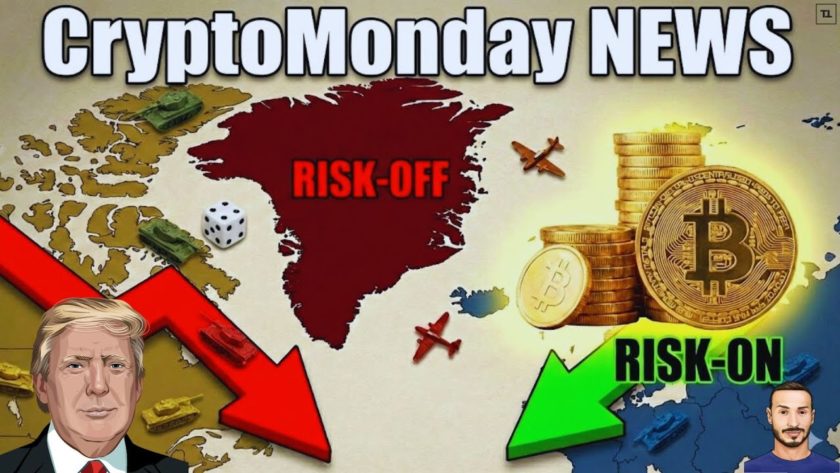In recent news, South Korea has
implemented a complete ban on short selling, a move that has sparked debates
about its implications and motivations. The head of the Financial Supervisory
Service (FSS), Lee Bok-hyun, defends the decision, citing rampant illegal short
selling in the stock market. While the ban is portrayed as a necessary step to
combat financial misconduct, it raises questions about its impact and whether
other countries should follow suit.
Lee Bok-hyun asserts that the
ban is a response to the identification of around 100 stocks as targets for
naked short selling, emphasizing the need to uproot illegal practices. The
measure is presented as part of introducing an advanced short selling system to
regulate the market effectively. However, critics argue that it might be a
political decision in preparation for the upcoming general election.
The ban on short selling is
portrayed as an emergency measure to address the widespread illegality in the
market.
Lee compares the situation to a market with
shattered windows due to the prevalence of illegal activities. Despite concerns
that the ban might affect South Korea’s inclusion in the Morgan Stanley Capital
International (MSCI) World Index, Lee prioritizes individual investors’ trust
over international rankings. He suggests that stability in the stock market is
crucial for both foreign and domestic investors.
As other countries observe
this development, the question arises: should they consider implementing
similar measures?
Proponents of the ban argue
that it is a necessary step to maintain market integrity and protect
individual investors. They contend that short selling, especially when
conducted illegally, can lead to market manipulation and unfair practices.
On the other hand, opponents
raise concerns about the
potential negative impacts of a complete ban on short selling. They argue
that short selling plays a vital role in providing liquidity to the market,
allowing investors to express their views on stock prices. Banning it entirely
could hinder market efficiency and limit investment strategies.
Examining the Role of
Short-Selling in Market Dynamics
When short-sellers target a
stock in your portfolio or under consideration, understanding their perspective
is vital. Essentially, a high presence of short-sellers can serve as both a
cautionary signal and an opportunity for contrarian investors.
Banning short-selling, while
politically expedient, eliminates a valuable source of market information,
compromising efficiency.
What is the solution?
One aspect to ponder is whether
a complete ban is the only solution or if there are alternative measures to
address illegal short selling. Enhanced regulations, stricter oversight, and
improved reporting mechanisms could be explored to strike a balance between
maintaining market integrity and allowing legitimate short selling activities.
Elevating Market
Transparency: The Blockchain Revolution via Decentralized Stock Market
Bringing the stock market into
the realm of blockchain technology presents a transformative solution to the
transparency challenges faced by markets, including South Korea. The
traditional stock market operates on centralized systems, leading to concerns
about opacity, fraud, and inefficiencies. Embracing blockchain can address
these issues and usher in a new era of transparency and accountability.
Blockchain’s decentralized
ledger system ensures that every transaction, from buying and selling to
ownership transfers, is securely recorded and time-stamped. This transparency
eliminates the risk of manipulation or unauthorized alterations, providing investors
with an immutable and verifiable record of market activities. In the South
Korean context, where recent measures like the short-selling ban aim to curb
illicit practices, blockchain offers a comprehensive solution by inherently
discouraging fraudulent activities.
Smart contracts, a feature of
blockchain technology, can automate and enforce compliance with market
regulations. This reduces the likelihood of regulatory ambiguities and ensures
that all participants adhere to the prescribed rules. In a landscape where
regulatory clarity is crucial, especially in the wake of sudden market
interventions, blockchain’s self-executing contracts provide a reliable
framework for seamless regulatory compliance.
Moreover, blockchain introduces
a higher level of efficiency in the settlement process. With transactions
recorded in real-time on a distributed ledger, the cumbersome and
time-consuming clearance and settlement procedures can be streamlined. This not
only minimizes the risk of errors but also accelerates the overall trading
cycle, contributing to a more agile and responsive market environment.
Conclusion
South Korea’s ban on short
selling sparks a broader conversation about the role of such practices in
financial markets. The case for or against short selling bans should consider
the unique dynamics of each market and the potential long-term consequences on
investors and market efficiency.
In recent news, South Korea has
implemented a complete ban on short selling, a move that has sparked debates
about its implications and motivations. The head of the Financial Supervisory
Service (FSS), Lee Bok-hyun, defends the decision, citing rampant illegal short
selling in the stock market. While the ban is portrayed as a necessary step to
combat financial misconduct, it raises questions about its impact and whether
other countries should follow suit.
Lee Bok-hyun asserts that the
ban is a response to the identification of around 100 stocks as targets for
naked short selling, emphasizing the need to uproot illegal practices. The
measure is presented as part of introducing an advanced short selling system to
regulate the market effectively. However, critics argue that it might be a
political decision in preparation for the upcoming general election.
The ban on short selling is
portrayed as an emergency measure to address the widespread illegality in the
market.
Lee compares the situation to a market with
shattered windows due to the prevalence of illegal activities. Despite concerns
that the ban might affect South Korea’s inclusion in the Morgan Stanley Capital
International (MSCI) World Index, Lee prioritizes individual investors’ trust
over international rankings. He suggests that stability in the stock market is
crucial for both foreign and domestic investors.
As other countries observe
this development, the question arises: should they consider implementing
similar measures?
Proponents of the ban argue
that it is a necessary step to maintain market integrity and protect
individual investors. They contend that short selling, especially when
conducted illegally, can lead to market manipulation and unfair practices.
On the other hand, opponents
raise concerns about the
potential negative impacts of a complete ban on short selling. They argue
that short selling plays a vital role in providing liquidity to the market,
allowing investors to express their views on stock prices. Banning it entirely
could hinder market efficiency and limit investment strategies.
Examining the Role of
Short-Selling in Market Dynamics
When short-sellers target a
stock in your portfolio or under consideration, understanding their perspective
is vital. Essentially, a high presence of short-sellers can serve as both a
cautionary signal and an opportunity for contrarian investors.
Banning short-selling, while
politically expedient, eliminates a valuable source of market information,
compromising efficiency.
What is the solution?
One aspect to ponder is whether
a complete ban is the only solution or if there are alternative measures to
address illegal short selling. Enhanced regulations, stricter oversight, and
improved reporting mechanisms could be explored to strike a balance between
maintaining market integrity and allowing legitimate short selling activities.
Elevating Market
Transparency: The Blockchain Revolution via Decentralized Stock Market
Bringing the stock market into
the realm of blockchain technology presents a transformative solution to the
transparency challenges faced by markets, including South Korea. The
traditional stock market operates on centralized systems, leading to concerns
about opacity, fraud, and inefficiencies. Embracing blockchain can address
these issues and usher in a new era of transparency and accountability.
Blockchain’s decentralized
ledger system ensures that every transaction, from buying and selling to
ownership transfers, is securely recorded and time-stamped. This transparency
eliminates the risk of manipulation or unauthorized alterations, providing investors
with an immutable and verifiable record of market activities. In the South
Korean context, where recent measures like the short-selling ban aim to curb
illicit practices, blockchain offers a comprehensive solution by inherently
discouraging fraudulent activities.
Smart contracts, a feature of
blockchain technology, can automate and enforce compliance with market
regulations. This reduces the likelihood of regulatory ambiguities and ensures
that all participants adhere to the prescribed rules. In a landscape where
regulatory clarity is crucial, especially in the wake of sudden market
interventions, blockchain’s self-executing contracts provide a reliable
framework for seamless regulatory compliance.
Moreover, blockchain introduces
a higher level of efficiency in the settlement process. With transactions
recorded in real-time on a distributed ledger, the cumbersome and
time-consuming clearance and settlement procedures can be streamlined. This not
only minimizes the risk of errors but also accelerates the overall trading
cycle, contributing to a more agile and responsive market environment.
Conclusion
South Korea’s ban on short
selling sparks a broader conversation about the role of such practices in
financial markets. The case for or against short selling bans should consider
the unique dynamics of each market and the potential long-term consequences on
investors and market efficiency.



